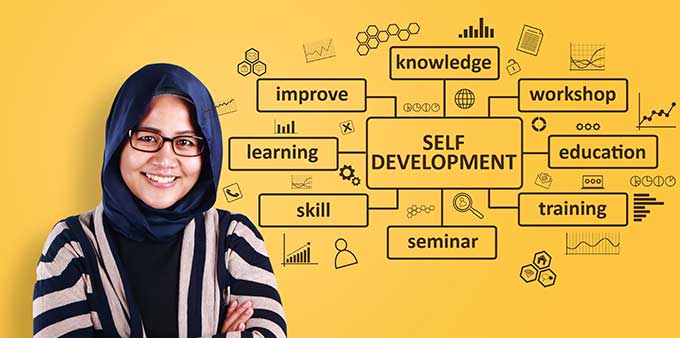Studies conducted over the last 18 months have revealed that senior management levels lacked leadership the most during the COVID-19 pandemic, with middle management and director levels coming in close second and third, respectively. We dug a little deeper, to find out what this means for companies in general, and in relation to a global pandemic.
What research says about skills gaps in senior leadership

Through detailed analysis with our partners, companies and teams, we’ve found that while leadership teams may have a firm grasp on technical skills and industry-specific knowledge, there remains a shortfall on the soft skills necessary to bring projects to life and guide middle managers and their teams toward success.
Respondents to a recent survey¹ identified that the top 3 skills their leaders needed to develop further were:
- People management (45%)
- Communication (39%)
- Building relationships and interpersonal skills (38%)
This is not just another COVID-19 challenge. One must wonder, and possibly draw the conclusion, that this was a pre-existing condition prior to COVID-19, one that the drastic changes in work conditions merely highlighted and/or amplified.
According to Gill Harper, Development Manager at City & Guilds, many of the skills that businesses have identified as both valuable and necessary are what she would term “industry-agnostic”. Regardless of industry or vocation, the skillsets required by senior leaders are very different to the training they have probably received thus far – which would have been predominantly vocational in nature.
Through a City & Guilds skills survey², participants shed light on the skills that they believe their business will need over the next three years. The results show that 5 soft skills ranked high on the list:
- Leadership skills (40%)
- Interpersonal skills (39%)
- Problem-solving skills (31%)
- Communication skills (29%)
- Time management (19%)
In the words of Gill Harper, “Someone promoted to senior leadership because of their technical skills might be the best engineer or medical professional in the world... But without the right set of leadership skills – and soft skills – there will always be a struggle to lead teams to success.”
Has Covid changed what we need from our senior leaders?
Although we’ve established that the gaps in key skills and behaviours within senior leadership roles most likely existed pre-COVID, the pandemic’s impact on the current workplace has amplified them and has also created new gaps.
While senior leadership may have donned a rather typical appearance in the everyday office environment, remote working has introduced the need for a more creative approach, and a far more personal one. Senior leaders have had to get to know their middle managers and teams on a personal level and adjust leadership practices to motivate and inspire productivity through challenging times.
What’s more, as pointed out by Jill Hansen, Leadership and Management Technical Advisor at ILM, “Senior leaders should be uncovering their own leadership styles and strengths. The pandemic has reinforced the need for senior leaders to demonstrate personal motivation and drive and bring this out in their teams.”
Bringing it all together – Learning to lead better

According to Hansen and Harper, many of the skills that need further development within senior leadership focus around fluid strategy within multiple areas. This first requires understanding what the situation within one’s own organisation is and then asking the question: “What is it like in the world out there? How does my organisation fit?”
Why? Because the people – the human resources – who power the organisation are knee-deep, sometimes neck-deep, in the quagmire of difficulties that the world is facing. As a result, the strategies that senior leadership will be responsible for curating need to align with the realities identified by regularly scanning the horizon.
In short, high-level strategy and industry-specific knowledge combined with crystal-clear perception and human empathy amounts to a formidable senior leadership formula.
Learning, honing and integrating these key skills and behaviours does not happen overnight. Through investing in training, senior leaders may develop their skills and leadership style – effectively and on the job.
One such leader who took the plunge in 2019 was Viv Kennedy of Lloyds Banking Group. She shared with us her own management apprenticeship experience:
“Without a doubt, I am much better at my job than I was two years ago. My management and leadership skills have gone through the roof compared to where they were before. But, more than that, there has been a fundamental change in me as a person, and the way I think, the way I view everything. I’m much more measured, more self-aware. I feel as though I’ve unlocked a dormant power within my brain.” [1]
What is ILM doing to develop and support great senior leaders?
In all that we’ve observed through research and studies, interviews and partner engagements, there remains a clear picture of where senior managers may contribute the highest value as leaders within their organisation:
- How they show up to a crisis
- How they set up effective communication with their middle managers and teams
- How they build relationships inside and outside their organisation
- How they establish trust and motivation, which is especially important within remote-working environments.
And so, tailored to these observations, ILM is set to launch a Level 7 Diploma for Senior Leaders in September 2021, which will enable senior managers to put their learning and experience into daily practice. [2]
Over and above learning how to implement strategy in leadership and change management, develop organisational values and lead strategic negotiations – all of which are covered in the diploma content – one of the biggest outcomes of senior leadership development is confidence. According to Hansen, “Often, in addition to the new knowledge and skills, the most impactful benefit for leaders is that of greater confidence in their abilities as a leader.”
For companies looking to enrol their senior leaders, the Level 7 Diploma for Senior Leaders – the first of its kind, here’s what to expect:
- This is an on-the-job diploma, with assessments directly linked to workplace experience and achievements.
- Results are therefore apparent within the organisation, as they are within the academic outcomes. There is an immediate return on investment.
- The diploma will require the senior leaders’ time, energy and commitment, but the rewards are life-changing.
- ILM makes single modules available to those who wish to tackle only one or a few units at a time.
If you’d like to learn more about what ILM is doing to help transform the senior leadership corporate landscape,
Learn more about the Level 7 Diploma for Senior Leaders
Contact us directly
Sources
With gratitude to the teams of researchers and participants who contributed to the following reports and case studies:
¹ Leading through challenging times , 2020 – City & Guilds
² Skills Index, 2021 – City & Guilds